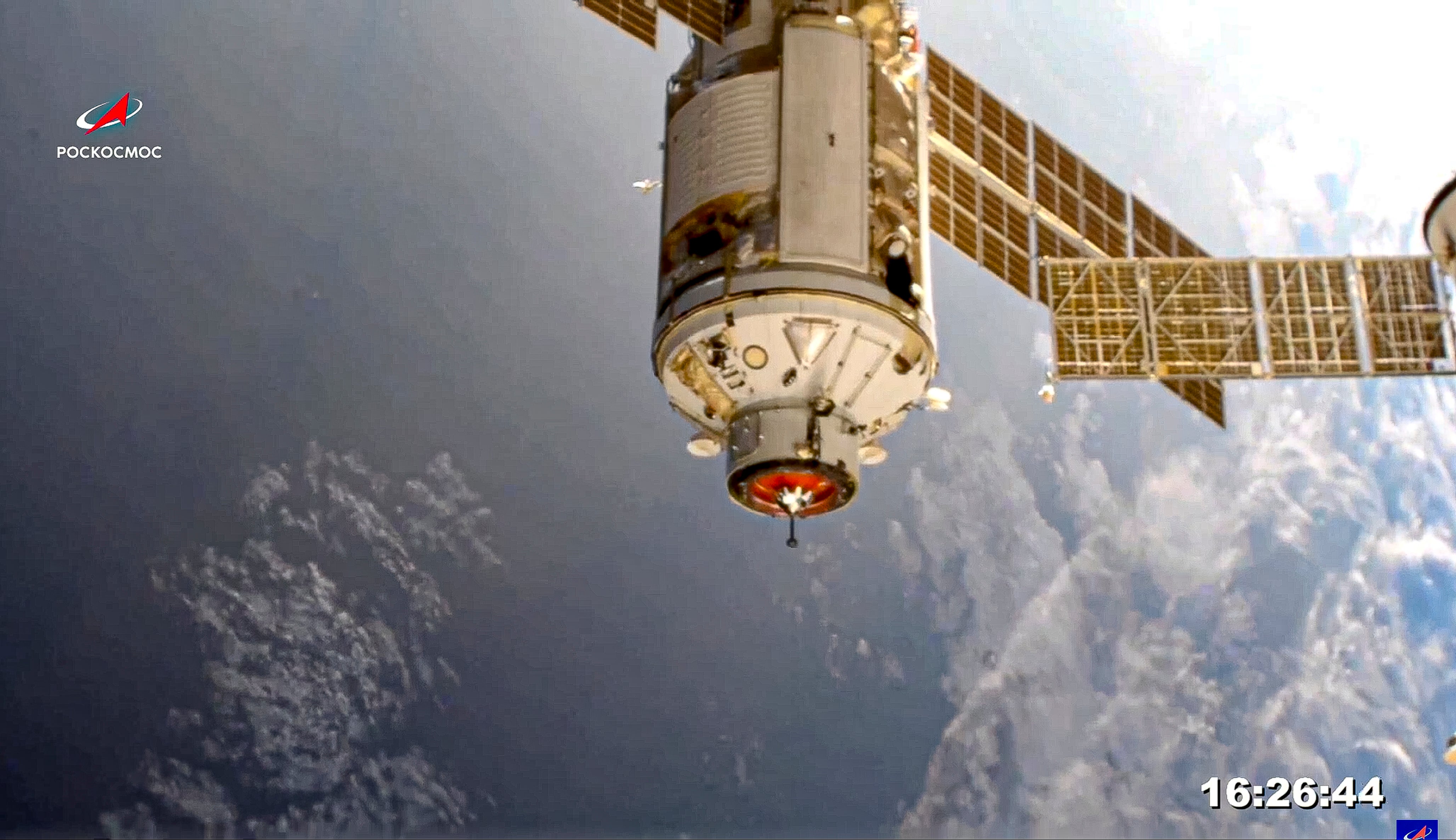Nasa forced to take emergency action at International Space Station after module goes out of control

Nasa has been forced to take emergency measures after a new module took the International Space Station out of control.
A piece of Russian equipment known as the Multipurpose Laboratory Module (MLM), and named Nauka, arrived at the International Space Station today. The new equipment initially appeared to have arrived successfully, docking after eight days spent in space.
But soon after, flight controllers noticed that Nauka’s thrusters continued to be firing, despite the fact it had completed its flight and safely joined the space station.
That, in turn, forced the floating lab off course and out of orientation, engineers realised. The station fell 45 degrees out of its normal attitude, Nasa said.
Nasa has now said in a statement that its “ground teams have regained attitude control and the motion of the space station is stable”.
The space agency also claimed that the crew “was never and is not in any danger”.
Reports suggested that Nauka burnt through its fuel during the incident, so that it could not happen again.
All of the crew’s normal schedules will be cancelled, Nasa said, and they will instead spend the day recovering from the incident.
Flight controllers will continue to monitor the space station, it said.
Nasa and Boeing also announced that they would postpone the planned launch the Starliner spacecraft, which had been scheduled to go to the International Space Station tomorrow.
“The move allows the International Space Station team time to continue working checkouts of the newly arrived Roscosmos’ Nauka module and to ensure the station will be ready for Starliner’s arrival,” Nasa said in a separate statement.
Join our commenting forum
Join thought-provoking conversations, follow other Independent readers and see their replies
Comments
Bookmark popover
Removed from bookmarks